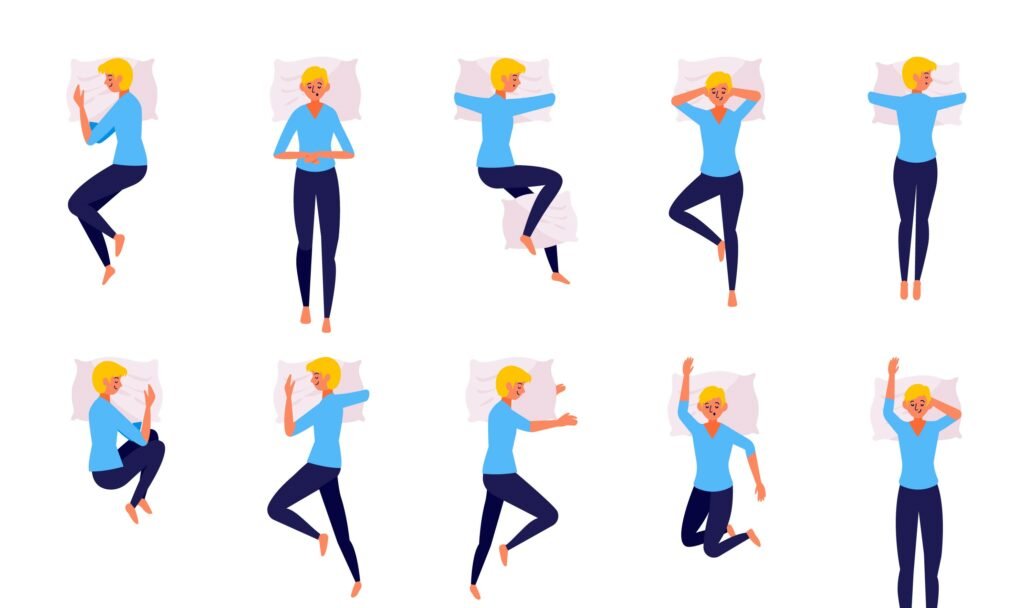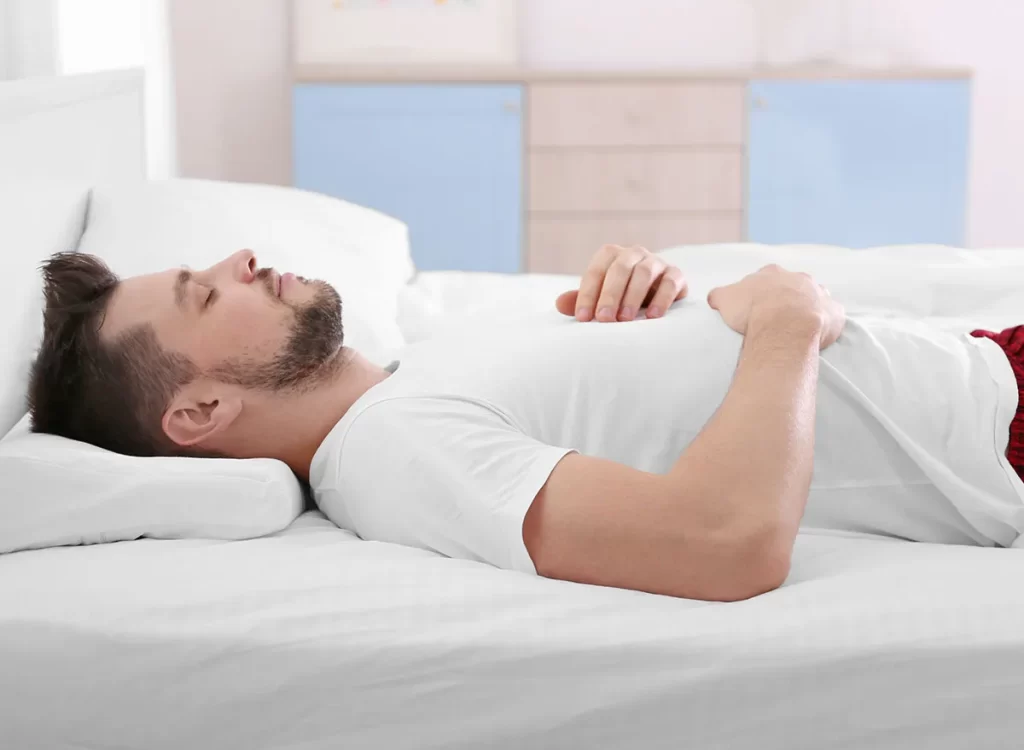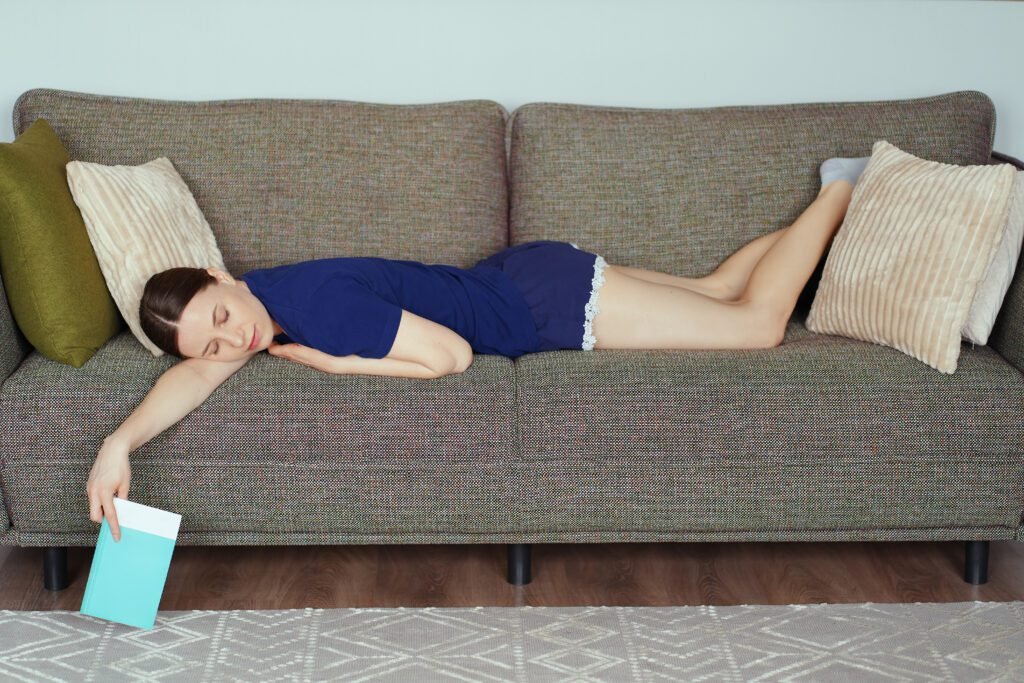The National Sleep Foundation (NSF) provides the sleep-health theory that plays a key role in improved health and well-being through sleep. It is essential in every process of the human body. Also, effective for the overall physical and mental functioning, metabolism, development of immunity and chronic disease risk, and the ability to fight disease. Sleep is truly multidisciplinary because it touches every aspect of health. The study shows the importance of sleep in psychology and general guidelines for recommended sleep durations based on age groups, genetics, and lifestyle.
Sleep Recommended by Age

Keep in mind that these are general recommendations, and some individuals may require more or less sleep. There are the recommended sleep durations by age group include:
-
Newborns (0-3 months)
14-17 hours of sleep per day. Newborns have irregular sleep patterns and typically wake up every few hours to feed.
-
Infants (4-11 months)
12-15 hours of sleep per day. Infants may still wake up during the night but should be developing a more regular sleep schedule.
-
Toddlers (1-2 years)
11-14 hours of sleep per day. Most toddlers will take one nap during the day and sleep for a longer duration at night.
-
Preschoolers (3-5 years)
10-13 hours of sleep per day. Most children in this age group will no longer take daily naps and sleep primarily at night.
-
School-age Children (6-13 years)
9-11 hours of sleep per day. School-age children need a good night’s sleep to support their physical and cognitive development.
-
Teenagers (14-17 years)
8-10 hours of sleep per day. Adolescents often face sleep challenges due to changes in their internal body clocks and increased academic and social demands.
-
Adults (18-64 years)
7-9 hours of sleep per night. Most adults require 7-9 hours of sleep per night to maintain optimal health and well-being.
-
Older adults (65+ years)
7-8 hours of sleep per night. As people age, they may experience changes in their sleep patterns, such as more fragmented sleep or difficulty falling asleep.
It’s crucial to note that individual variations exist, and some people may feel well-rested and healthy with slightly more or slightly fewer hours of sleep than the recommended ranges. The key is to pay attention to your body and ensure you are getting enough quality sleep to feel refreshed, alert, and able to function at your best during the day.
Oversleeping Disadvantages:
Oversleeping, or long sleeping is defined as sleeping more than enough hours. In this case, a condition one may experience excessive sleep and mental disorders. The disadvantage of oversleeping is that it can cause many diseases. Consistently getting too little sleep can lead to a range of health issues, including:
- Obesity
- Diabetes
- Hypersomnia
- Narcolepsy
- Cardiovascular
Moreover, consistently getting too much sleep may also have negative health implications, such as an increased risk of certain health conditions, impaired cognitive function, etc. It’s important to maintain a healthy and balanced sleep schedule for overall well-being. If you have concerns about your sleep or are experiencing sleep problems, it’s advisable to consult with a healthcare professional or sleep specialist for personalized guidance and recommendations.
What is the Healthiest Sleeping Position in Psychology?

The study suggests the importance of sleep in psychology in our daily lifestyles influences our sleeping positions. The best sleep position for your overall health is often considered to be sleeping on your back, called the prone position. There’s a detailed explanation of why this position is generally recommended for overall health, along with some considerations for other sleep positions including:
Sleeping on Your Back (Supine Position)
-
Spinal Alignment:
Back sleeping helps maintain a neutral spinal alignment, which reduces the risk of developing musculoskeletal problems and maintains good spinal health. It evenly distributes your body weight, reducing the risk of developing posture-related issues.
-
Minimized Pressure on Joints:
This position minimizes pressure on your joints, reducing the risk of waking up with aches and pains in the neck, shoulders, and hips.
-
Prevention of Acid Reflux:
Back sleeping can help prevent acid reflux symptoms, as it keeps your head and upper body elevated, reducing the likelihood of stomach acid flowing back into the esophagus.
-
Reduced Risk of Wrinkles:
When you sleep on your back, your face is not pressed against a pillow, which can help prevent the development of facial wrinkles and acne, as there’s less contact between your skin and the pillow.
-
Reduced Risk of Obstructive Sleep Apnea:
For individuals with obstructive sleep apnea, back sleeping is often recommended, as it can help keep the airway open and reduce the severity of sleep apnea events.
Considerations for Other Sleep Positions
While back sleeping is generally recommended for overall health, it may not be suitable for everyone due to comfort or medical considerations. In such cases, other sleep positions can be considered:
1. Side Sleeping Position (Left-Side Preferred)

Sleeping on your side, especially on the left side, is the second-best option for overall health. It has some specific benefits, including:
-
Improved Heart Function:
Left-side sleeping can enhance circulation and reduce the workload on the heart. It may be particularly beneficial for individuals with heart conditions.
-
Reduced Acid Reflux:
Sleeping on your left side can also help reduce acid reflux symptoms by keeping the stomach contents away from the esophagus.
2. Back Sleeping Position

Sleeping straight or on your back is the second most popular sleeping position. In this position, it’s easy to keep your spine in alignment and to evenly divide your body weight. it is beneficial in preventing any potential aches in the neck or back.
3. Stomach Sleeping Position

Sleeping on your stomach can strain your neck and spine, potentially leading to discomfort and pain. It’s generally not recommended for overall health, but some people find it comfortable. If you prefer this position, using a flatter pillow or no pillow at all may help reduce neck strain.
4. Fetal Sleeping Position

Curling up in the fetal position can be comfortable for many people. However, it can potentially lead to joint and muscle pain over time. To sleep in this position more comfortably, make sure your body isn’t too tightly curled, and use a supportive pillow between your knees.
5. Combination Sleeping Position

Many people naturally change positions throughout the night. If you’re a combination sleeper, it’s essential to prioritize back and side sleeping while minimizing time spent on your stomach.
The choice of sleep position ultimately depends on individual comfort and any underlying medical conditions or sleep-related issues. It’s essential to prioritize quality sleep, which means choosing a position that allows you to get restful and uninterrupted sleep. A supportive mattress and pillows can also enhance your sleep quality regardless of your chosen sleep position. If you have concerns about your sleep posture or experience sleep-related problems, consider consulting a healthcare professional or a sleep specialist for personalized guidance and recommendations.
Best Sleep Position for Heart Health

Sleep gives time for the body to restore and recharge and plays a key role in nearly all aspects of physical health. For heart health, insufficient or fragmented sleep can contribute to problems with blood pressure and increase the risk of heart attack, heart disease, stroke, and diabetes. The best sleep position for heart health is generally sleeping on your back, also known as the prone position.
Here’s a detailed explanation of why this position is considered optimal for heart health, along with some other considerations:
1. Minimized Pressure on the Heart
When you sleep on your back, there is minimal pressure on your heart and blood vessels. This allows your heart to pump blood more efficiently throughout your body, which can be particularly beneficial for individuals with heart conditions or high blood pressure.
2. Neutral Alignment
Sleeping on your back helps maintain a neutral and aligned posture, which reduces stress on your spine, neck, and pelvis. This position distributes your body weight evenly, reducing the risk of developing musculoskeletal issues and maintaining good spinal health.
3. Reduced Risk of Acid Reflux
Back sleeping can help minimize the symptoms of acid reflux or gastroesophageal reflux disease (GERD). Elevating your upper body with pillows or an adjustable bed may further reduce the risk of acid reflux while sleeping in this position.
4. Decreased Risk of Neck and Shoulder Pain:
Side-sleeping and stomach-sleeping can sometimes strain the neck and shoulders, potentially leading to discomfort and pain. Sleeping on your back, with the proper pillow support, can help reduce the likelihood of waking up with these types of aches.
5. Facial Wrinkles Prevention:
Sleeping on your back can reduce the risk of developing wrinkles and fine lines on your face since your skin doesn’t come into contact with your pillow, which can cause skin compression and friction when sleeping on your side or stomach.
6. Good for Airway Health:
For those with breathing difficulties, back sleeping can promote better airway health and reduce the risk of obstructive sleep apnea. However, some individuals with sleep apnea may find it beneficial to sleep in a slightly elevated position with their head and upper body elevated to help keep the airway open.
To sum up, the importance of sleep in psychology refers to your comfort and any underlying medical conditions when choosing your sleep positions. If you have concerns about your sleep posture or experience sleep-related issues, consult a healthcare professional or a sleep specialist for personalized guidance and recommendations. Additionally, using the right mattress and pillows can also contribute to a more comfortable and supportive sleeping experience, regardless of your chosen sleep position. Last but not least, sleep is the single most effective thing we can do to reset our brain and body health every day. So don’t forget that a sound sleep is the best cure for anything.






